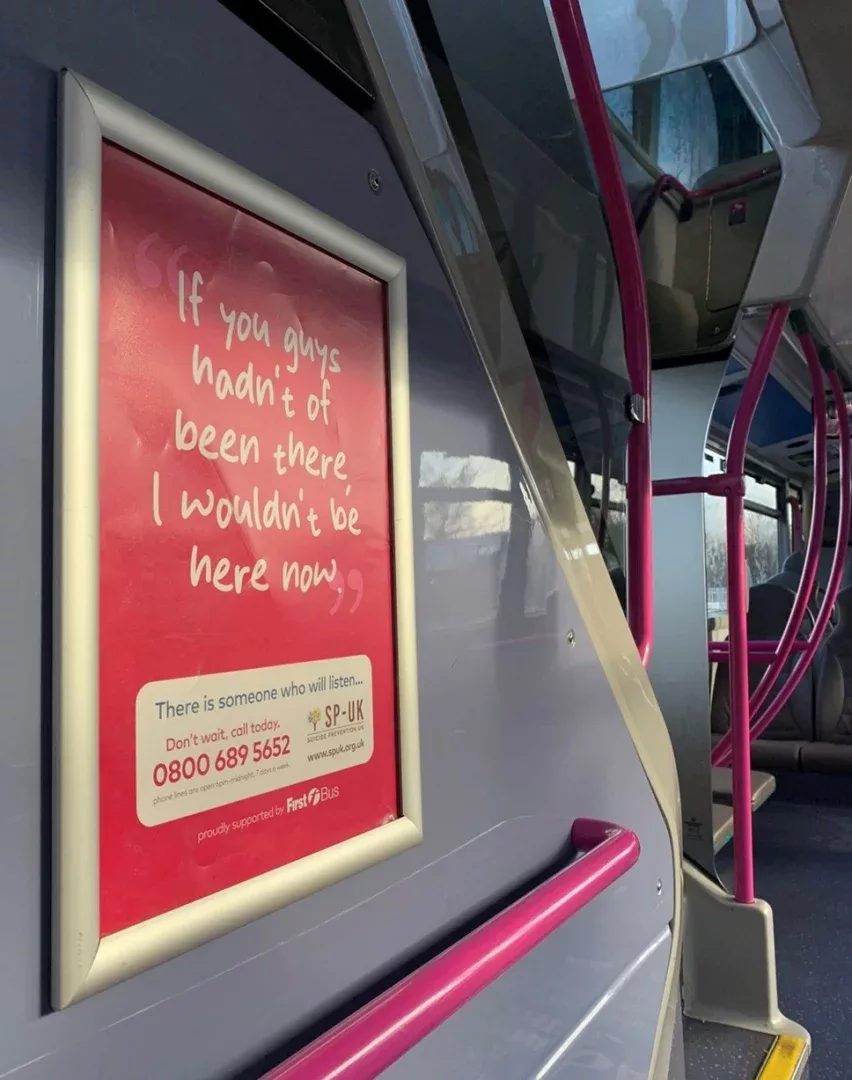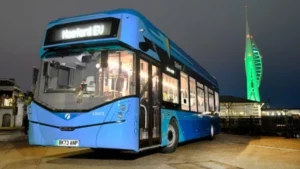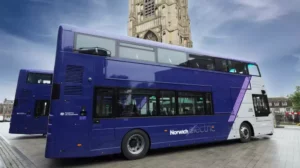New research has found people at risk of suicide are increasingly using buses to travel to the place they plan to take their lives to avoid being detected by emergency services. This study coincides with Bristol-based Suicide Prevention UK teaming up with bus company with First West of England in what is thought to be the first partnership of its kind, and at this scale, in the UK.
The bus operator and the charity have launched the ‘There is someone…’ campaign which aims to help those thinking about taking their life by offering support and guidance by highlighting that there is someone who can listen, talk and help.
It will also focus on educating bus drivers about the signs to look out for among distressed passengers, and to be aware of suicide risk areas on bus routes.
First West of England’s Managing Director Doug Claringbold said: “The research we’re hearing from Suicide Prevention UK is so compelling, and highlights the really important role our drivers have in helping to save lives.
“Anyone contemplating suicide must be in the most desperate state imaginable and we must do all we can to help them recognise that there is help, and there are people to talk to.
“Some take the bus industry for granted and think it’s just about getting people from A to B, but it is far more than that; it’s about our place in wider society, and I’m so pleased that through this partnership we can play our role in providing help by supporting this hugely worthwhile charity.”
Suicide Prevention UK was launched five years ago, and alongside offering a national support helpline, it also provides a team of volunteers who patrol suicide risk areas in the west of England, offering help to those who may be considering taking their own lives.
In the past three years, the charity has responded to more than 43,000 calls from people across the UK who are struggling with their mental health or considering suicide.
Data from its volunteer patrols shows that at least three in 50 (about 6%), of those asked, said they had taken public transport to the location where they planned to take their life, but that number could be much higher. Its research also shows that figure has increased over recent years, suggesting more people are using buses and public transport to get to their locations.
The charity says some of the reasons given by those in need for taking public transport include:
- being easily accessible and a cheaper way to travel (a vast range of locations and financial difficulties often impact mental wellbeing);
- not being in the right frame of mind to drive their own vehicle;
- leaving a car at home makes it less likely for the individual to be located;
- less likely to look ‘suspicious’, as they would blend in with other passengers;
- time alone on the bus means they can focus on their unkind thoughts and their plan;
- knowing the bus route goes past/to a high-risk location, which wouldn’t raise suspicion as it would be part of the journey.
Marianne Ramnath, Suicide Prevention UK’s Operations Manager, commented:
“Our volunteers take numerous phone calls via our helpline from people who may be travelling on the bus, or from concerned members of the public who have advised us their loved ones have travelled by bus to certain locations in order to end their lives.
“There is no fault here, and it can be incredibly difficult to recognise if someone is in crisis and at risk of ending their lives.
“This campaign with First West of England demonstrates the role the company and its drivers can play in helping to save lives in what is often a taboo area.
“Suicide is scary and uncomfortable to talk about, but by raising awareness, educating each other, making it known that there is support out there and encouraging people to reach out for help, together we can break the stigma and save lives.”
As part of the campaign, the current training given to drivers around suicide and mental health will be improved to now include how to spot the physical and visual signs among customers as well as spotting any actions which may indicate they need help. As part of that training, drivers will also be advised of potential high-risk areas on bus routes. Drivers will also be given advice on how to get help quickly if they think someone is considering or about to take their own life.
An on-board ‘There is someone…’ marketing campaign will start in the coming weeks, with up to 1.5million passengers each week on more than 500 buses in the West of England having access to information about where to get help.
And the bus operator is also offering the charity free bus travel for its volunteers while on duty to make travelling around the region easier.
Among those supporting the partnership is Bath Platform Inspector, Colin Partridge, who last summer, while working at Bath Bus Station, saved a teenage girl from taking her own life on a nearby bridge.
He said: “This partnership is really important as that bus trip could be that person’s final journey, and if there was information on the vehicles it may get someone to think twice and maybe encourage them to call the helpline and just talk to someone.
“As a bus company we do lots of miles across lots of different built-up and rural areas so knowing how to spot some signs and recognising people’s body language when they get on the vehicle could be really helpful, even if it’s just so we can keep an eye on them or alert others to something not quite right.
“We have quite a few drivers who ring us to say ‘there’s a person on the bus I’m not too sure about, can you come and speak to them’. But for drivers it can be hard; we see lots of people everyday and although our days can be really busy, and it’s usually just a hello or goodbye to passengers, sometimes you have to make the effort to have a conversation with those who you think might need help and support.”
(Picture – First Bus)





















